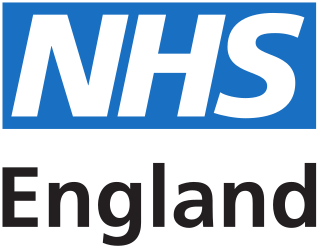
Cotham is an area of Bristol, England, about 1 mile north of the city centre. It is an affluent, leafy, inner city suburb situated north of the neighbourhoods of Kingsdown and St Paul’s and sandwiched between Gloucester Road (A38) to the east, and Hampton Road to the west.

Weston General Hospital is an NHS district general hospital in the town of Weston-super-Mare, Somerset, England, operated by University Hospitals Bristol and Weston NHS Foundation Trust. As of June 2019, the hospital had 261 beds and around 1,800 clinical and non-clinical staff. It has a part-time Accident & Emergency department, an intensive care unit, an oncology and haematology day unit, and a day case unit. The hospital also has a 12-bed private unit, The Waterside Suite, wholly owned by the hospital trust, with profits being re-invested into the main hospital.

The Royal United Hospital (RUH) is a major acute-care hospital in the Weston suburb of Bath, England, which lies approximately 1.5 miles (2.4 km) west of the city centre. The hospital has 565 beds and occupies a 52 acres (21 ha) site. It is the area's major accident and emergency hospital, with a helicopter landing point on the adjacent Lansdown Cricket Club field. The hospital is operated by the Royal United Hospitals Bath NHS Foundation Trust.
The NHS treatments blacklist is an informal name for a list of medicines and procedures which will not be funded by public money except in exceptional cases. These include but are not limited to procedures which the National Institute for Health and Care Excellence (NICE) has ruled of limited effectiveness and particular brand name medicines. In 2017 there was a proposal for 3,200 over-the-counter (OTC) drugs to be restricted and 18 procedures to be added to the list. This generated some controversy amongst doctors with some arguing that OTC should be blacklisted instead, and others believing the move did not take into account individual patient needs.

Healthcare in the United Kingdom is a devolved matter, with England, Northern Ireland, Scotland and Wales each having their own systems of publicly funded healthcare, funded by and accountable to separate governments and parliaments, together with smaller private sector and voluntary provision. As a result of each country having different policies and priorities, a variety of differences have developed between these systems since devolution.

The National Health Service (NHS) is the publicly funded healthcare system in England, and one of the four National Health Service systems in the United Kingdom. It is the second largest single-payer healthcare system in the world after the Brazilian Sistema Único de Saúde. Primarily funded by the government from general taxation, and overseen by the Department of Health and Social Care, the NHS provides healthcare to all legal English residents and residents from other regions of the UK, with most services free at the point of use for most people. The NHS also conducts research through the National Institute for Health and Care Research (NIHR).

Homeopathy is fairly common in some countries while being uncommon in others. In some countries, there are no specific legal regulations concerning the use of homeopathy, while in others, licenses or degrees in conventional medicine from accredited universities are required.
University College London Hospitals NHS Foundation Trust (UCLH) is an NHS foundation trust based in London, United Kingdom. It comprises University College Hospital, University College Hospital at Westmoreland Street, the UCH Macmillan Cancer Centre, the Royal National ENT and Eastman Dental Hospitals, the Hospital for Tropical Diseases, the National Hospital for Neurology and Neurosurgery, the Royal London Hospital for Integrated Medicine and the Royal National Throat, Nose and Ear Hospital.

South Bristol Community Hospital is a community hospital in the Hengrove area of Bristol, England, on the site of the former Whitchurch Airport. It opened in March 2012. It is managed by the University Hospitals Bristol and Weston NHS Foundation Trust.
Wirral University Teaching Hospital NHS Foundation Trust (WUTH) is an NHS Foundation Trust. It provides healthcare for people of the Wirral Peninsula and the surrounding areas of North West England and North Wales.

Blackberry Hill Hospital is an NHS psychiatric hospital in Fishponds, Bristol, England, specialising in forensic mental health services, operated by the Avon and Wiltshire Mental Health Partnership NHS Trust. The hospital also offers drug and alcohol rehabilitation inpatient services, and is the base for a number of community mental health teams.
Healthcare in the city of Bristol, England and the surrounding area is largely provided by the National Health Service (NHS). Until July 2022, this was provided through the Bristol, North Somerset and South Gloucestershire clinical commissioning group. Facilities include a large teaching hospital – Bristol Royal Infirmary – which offers nationally commissioned specialist cardiac, cancer and children's services from its city-centre campus to patients in the southwest of England and beyond.

Clinical commissioning groups (CCGs) were NHS organisations set up by the Health and Social Care Act 2012 to organise the delivery of NHS services in each of their local areas in England. On 1 July 2022 they were abolished and replaced by Integrated care systems as a result of the Health and Care Act 2022.

NHS England, officially the NHS Commissioning Board, is an executive non-departmental public body of the Department of Health and Social Care. It oversees the budget, planning, delivery and day-to-day operation of the commissioning side of the National Health Service in England as set out in the Health and Social Care Act 2012. It directly commissions NHS general practitioners, dentists, optometrists and some specialist services. The Secretary of State publishes annually a document known as the NHS mandate which specifies the objectives which the Board should seek to achieve. National Health Service Regulations are published each year to give legal force to the mandate.

The Good Thinking Society is a nonprofit organisation promoting scientific scepticism established by Simon Singh in September 2012.
Healthcare in London, which consumes about a fifth of the NHS budget in England, is in many respects distinct from that in the rest of the United Kingdom, or England.
Healthcare in Somerset, England was the responsibility of three clinical commissioning groups (CCGs) until July 2022. These covered the ceremonial county of Somerset, which comprises the areas governed by the three unitary authorities of Somerset, North Somerset and Bath and North East Somerset.
Healthcare in Gloucestershire was the responsibility of two clinical commissioning groups, covering Gloucestershire and South Gloucestershire, until July 2022. The health economy of Gloucestershire has always been linked with that of Bristol.
Healthcare in Wiltshire, England, is the responsibility of the integrated care board (ICB) for Bath and North East Somerset, Swindon and Wiltshire.
The UK National Health Service has historically supported a number of hospitals which were created to primarily offer homeopathic treatments. Following declining support within the NHS for homeopathy as a treatment, all but one have now either closed down or substantially modified their activities.












